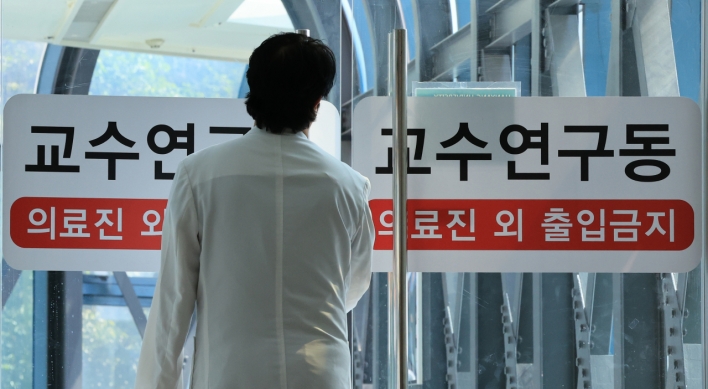 Reading Salman Rushdie’s novels, one can find some striking similarities between Korea and India. For example, both countries were victims of imperialism, colonized by Japan and Britain, respectively. Right after liberation, both countries were divided by ideological differences, whether political or religious. In both countries, rampant attitudes of moral superiority and self-righteousness justified hate and massacre. Violence and terrorism were legitimated in the name of the “grand cause.” Today, we still see hostility and antagonism between South and North Korea, just as between India and Pakistan.
Reading Salman Rushdie’s novels, one can find some striking similarities between Korea and India. For example, both countries were victims of imperialism, colonized by Japan and Britain, respectively. Right after liberation, both countries were divided by ideological differences, whether political or religious. In both countries, rampant attitudes of moral superiority and self-righteousness justified hate and massacre. Violence and terrorism were legitimated in the name of the “grand cause.” Today, we still see hostility and antagonism between South and North Korea, just as between India and Pakistan. Salman Rushdie was born to a Muslim family in Mumbai in 1947, the year India gained independence from the Britain. As a child, Rushdie vividly witnessed the atrocity of the clash between Islam and Hinduism that culminated in the division of the country into Pakistan and India. Rushdie’s novels “Midnight’s Children” and “Shalimar the Clown” are superb renditions of the turbulent history of India revolving around that period.
“Shalimar the Clown” is an account of a young Muslim Indian man who earned his nickname “the clown” by walking on a tightrope so skillfully. Shalimar falls in love with Boonyi and marries her, but she does not want to remain stuck in a small village. She becomes enamored with Max Ophuls, US ambassador to India, who brings her to Delhi and has an affair with her. Between them, an illegitimate daughter, India, is born.
The novel begins with India’s complaint about her name. As the girl is the result of an Indian woman’s relationship with a Western diplomat, we can assume that she is a symbol of contemporary India. Obsessed with the past, Shalimar cannot tolerate the present reality that is an outcome of past mistakes. In his eyes, the girl India is an error of the past and therefore should be purged. The problem is that Shalimar does not realize that denouncing his stepdaughter, India, is like denouncing his country, India. You cannot purge the present to redeem past mistakes. Instead, you should embrace the present reality as it is, no matter how terrible and ugly it may be, and move on.
Enraged by Boonyi’s betrayal, however, Shalimar pledges revenge on Max and India. With vengeance, he joins jihad to be trained as a terrorist in Afghanistan and the Philippines. Becoming a ruthless assassin, Shalimar kills Max and is arrested. Due to training in terrorist camps, Shalimar’s personal vendetta is mistaken as an act of justice for the grand cause.
A similar case can be found in an episode of the American TV drama NCIS titled “Monsters and Men.” In the episode, Benham Parsa is a cold-blood Pakistani terrorist who kills many innocent Americans indiscriminately in the name of the grand cause. However, it turns out that he is merely taking revenge for his parents who were killed by US bombing.
Escaping prison, Shalimar now tries to kill India as well. Shalimar and his stepdaughter India confront each other with a dagger and a bow. The ironic thing is that both of them are victims of the turbulent history of India. However, they foolishly hate and fight each other.
“Shalimar the Clown” can be read as a tragic story that depicts how a turbulent social milieu can destroy innocent people who get caught up in ideological warfare. Nevertheless, it can also be read as a cautionary tale that portrays how one’s personal vendetta can be mistaken as an act of justice; how one can easily blame external factors such as other countries when in fact the problem lies in internal ideological conflicts; and how one’s obsession with the past can destroy everything, including his own and his country’s present and future. The novel also can be read as a story about how a once well-balanced man can lose balance and fall to the ground, and how an entertaining clown can turn into a scary clown.
We can understand and sympathize with the predicaments of Shalimar and Parsa. Yet it would be wrong if they were resentful against others whom they thought were responsible for their miseries and took revenge in the name of justice. It would be equally wrong if they pretended that their personal retribution was a noble thing to do for the grand cause. It would be also wrong if they, obsessed with the past, denounced the present and ruined the future.
Through his novels, Rushdie emphasizes the importance of love and tolerance that can overcome hate and resentment. In “Fury,” Rushdie warns us that human civilizations could crumble and be annihilated due to our anger and wrath if we do not learn to embrace others who are different from us.
Our society, too, often seems to be full of “the sound and the fury,” as Shakespeare writes in “Macbeth” when he describes “life.” Some people are angry and spiteful, and others are self-righteous and morally arrogant. We should learn from Rushdie’s novels.
Kim Seong-kon
Kim Seong-kon is a professor emeritus of English at Seoul National University and visiting professor at Kyunghee Cyber University. He can be reached at sukim@snu.ac.kr -– Ed.




![[AtoZ into Korean mind] Humor in Korea: Navigating the line between what's funny and not](http://res.heraldm.com/phpwas/restmb_idxmake.php?idx=644&simg=/content/image/2024/04/22/20240422050642_0.jpg&u=)





![[Herald Interview] Why Toss invited hackers to penetrate its system](http://res.heraldm.com/phpwas/restmb_idxmake.php?idx=644&simg=/content/image/2024/04/22/20240422050569_0.jpg&u=20240422150649)

![[Graphic News] 77% of young Koreans still financially dependent](http://res.heraldm.com/phpwas/restmb_idxmake.php?idx=644&simg=/content/image/2024/04/22/20240422050762_0.gif&u=)





![[Herald Review] Xdinary Heroes kicks off five-month-long project with solo concert, teases new album](http://res.heraldm.com/phpwas/restmb_idxmake.php?idx=652&simg=/content/image/2024/04/22/20240422050539_0.jpg&u=20240422152154)
![[Today’s K-pop] Illit logs 100m Spotify streams with debut song](http://res.heraldm.com/phpwas/restmb_idxmake.php?idx=642&simg=/content/image/2024/04/22/20240422050650_0.jpg&u=)